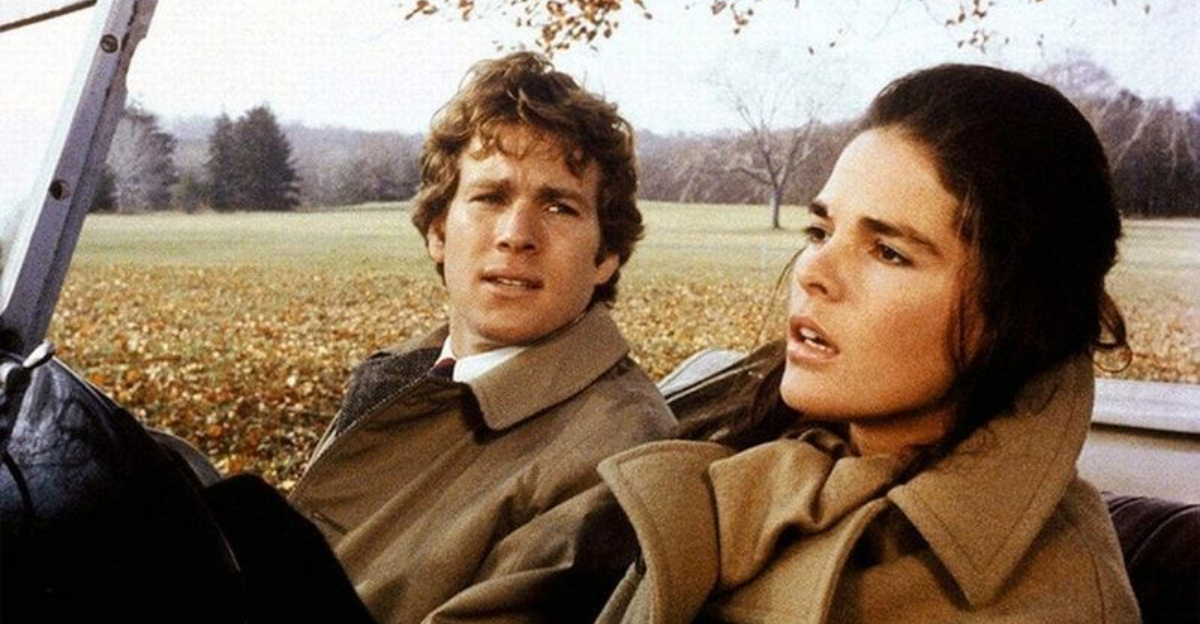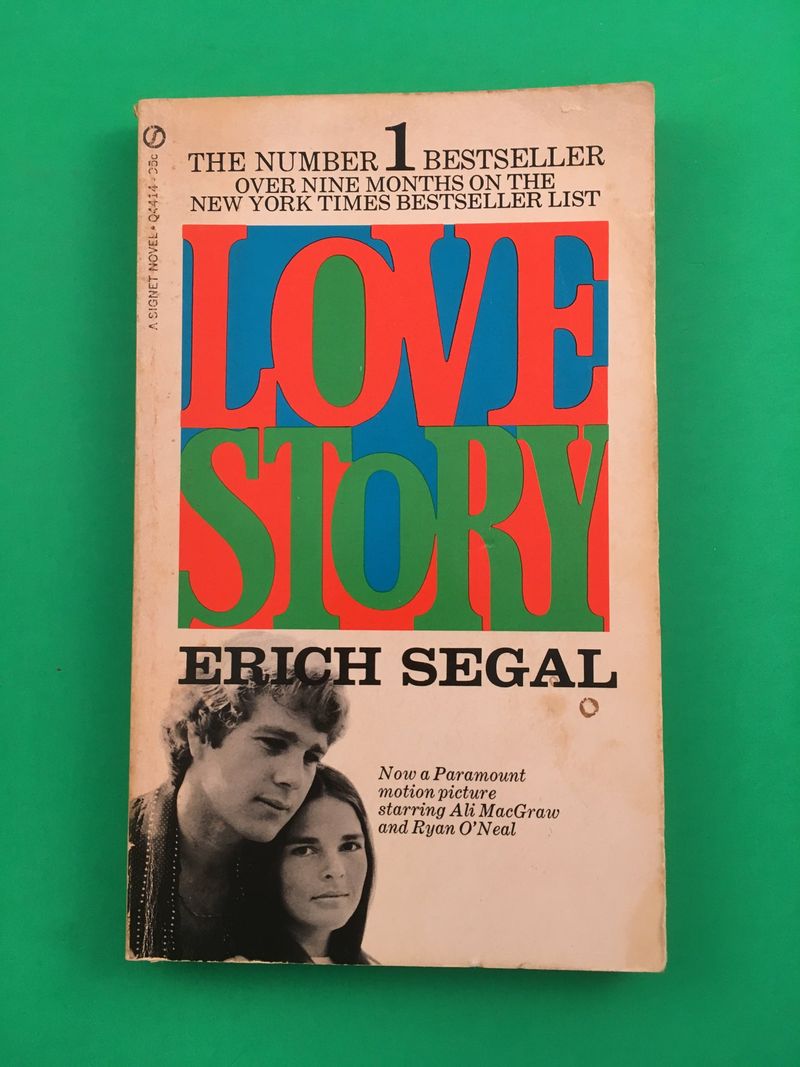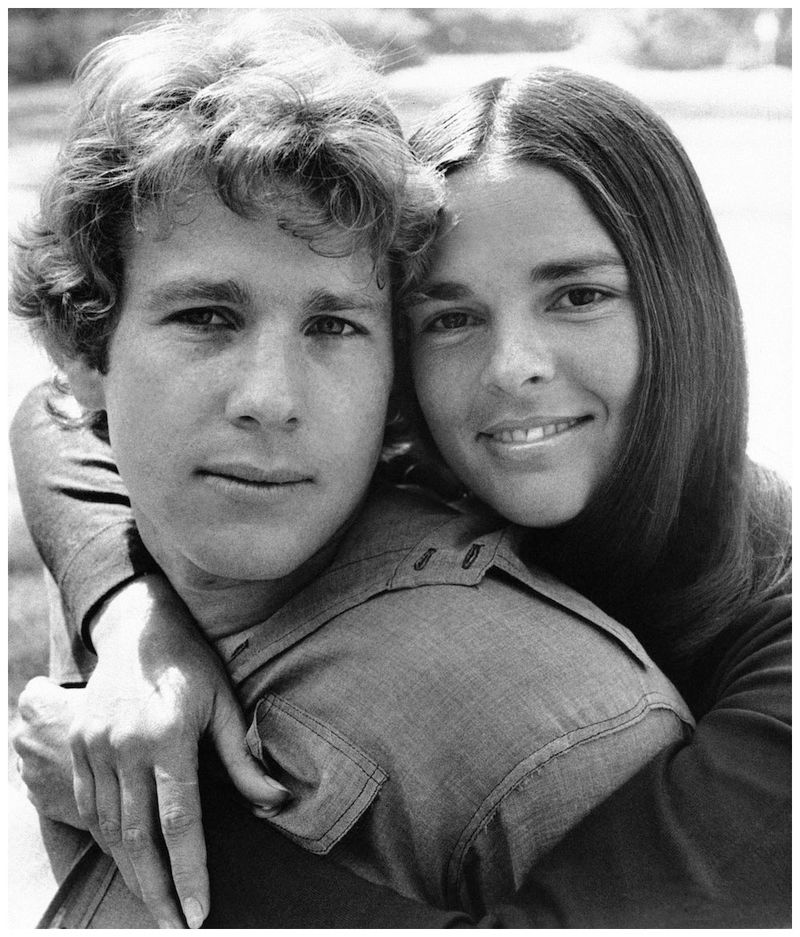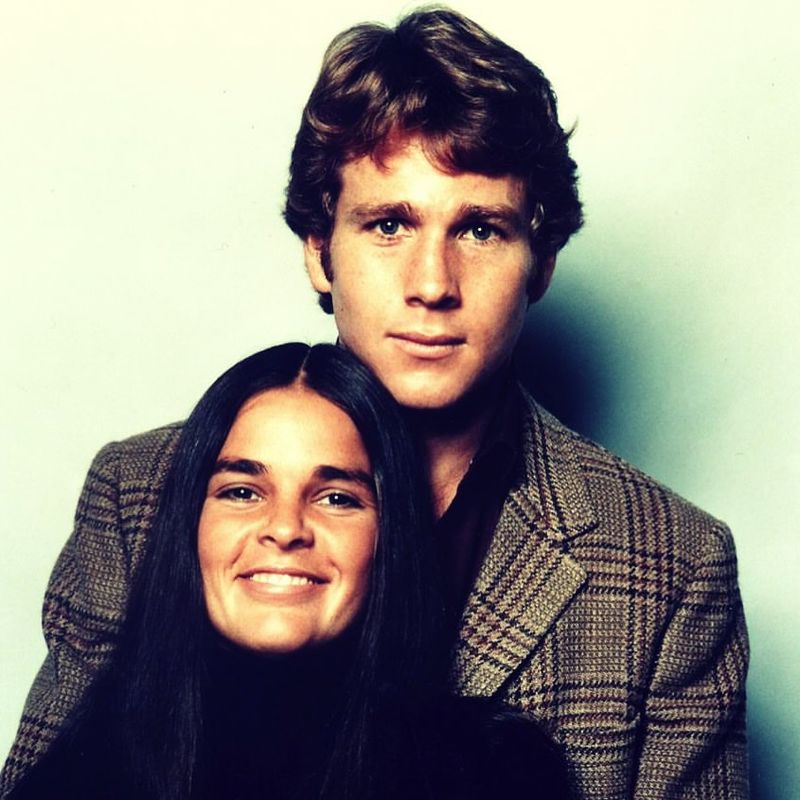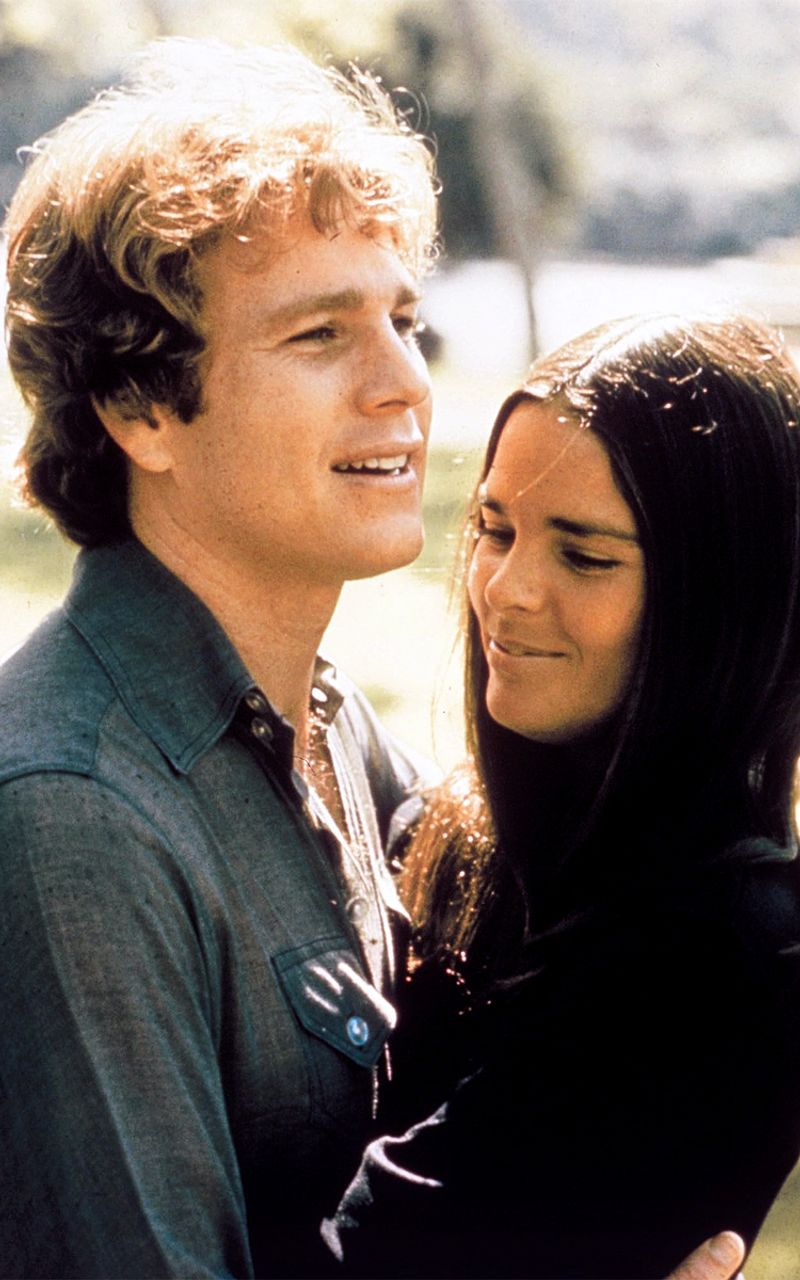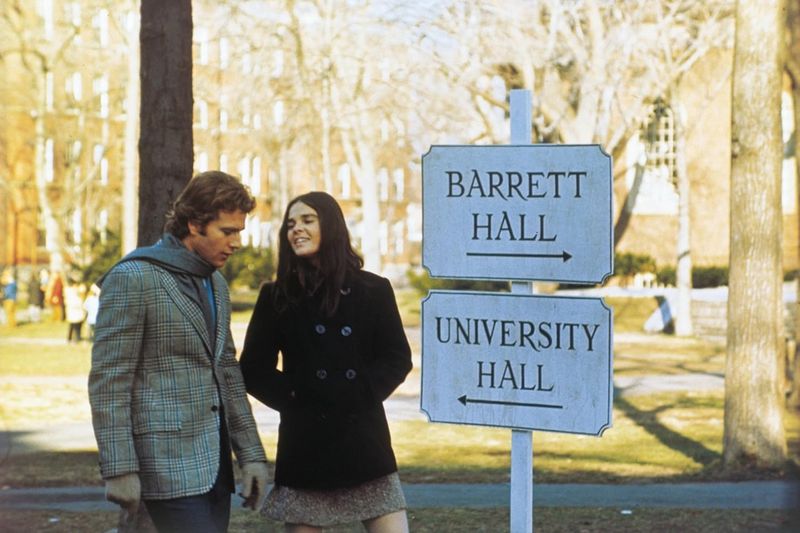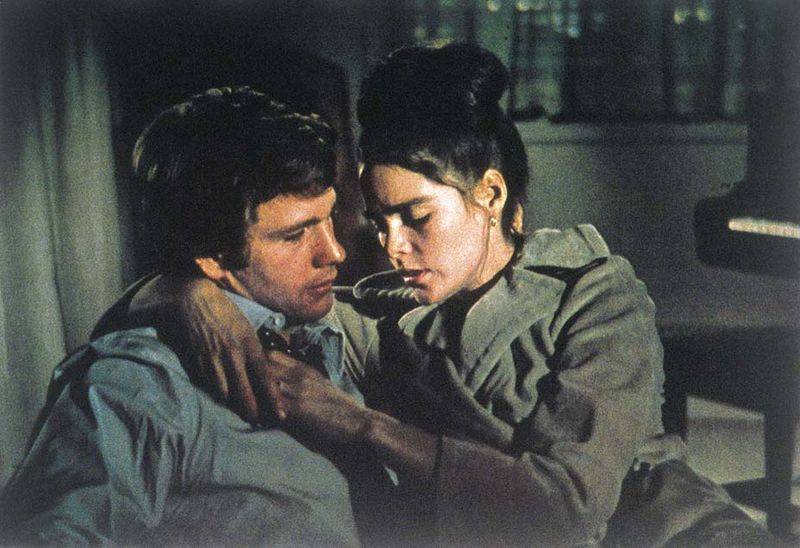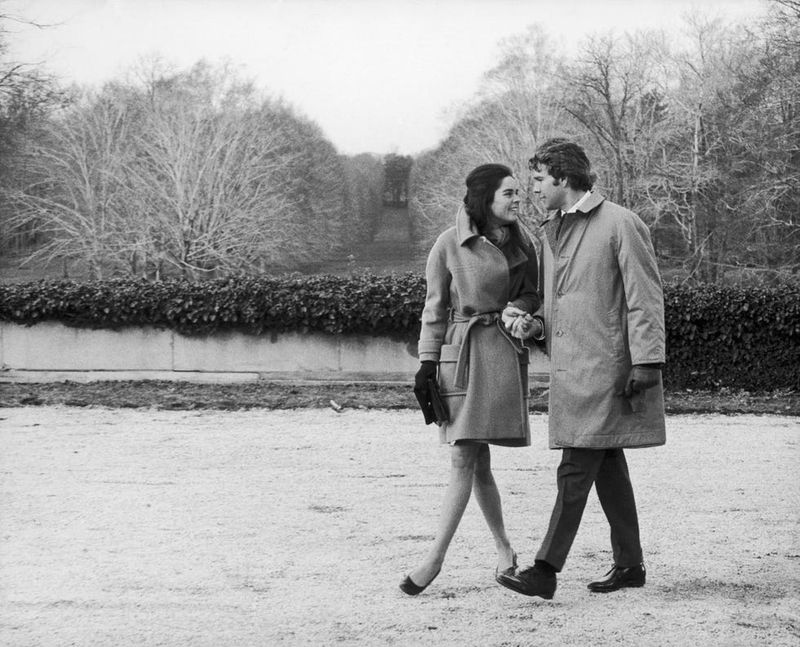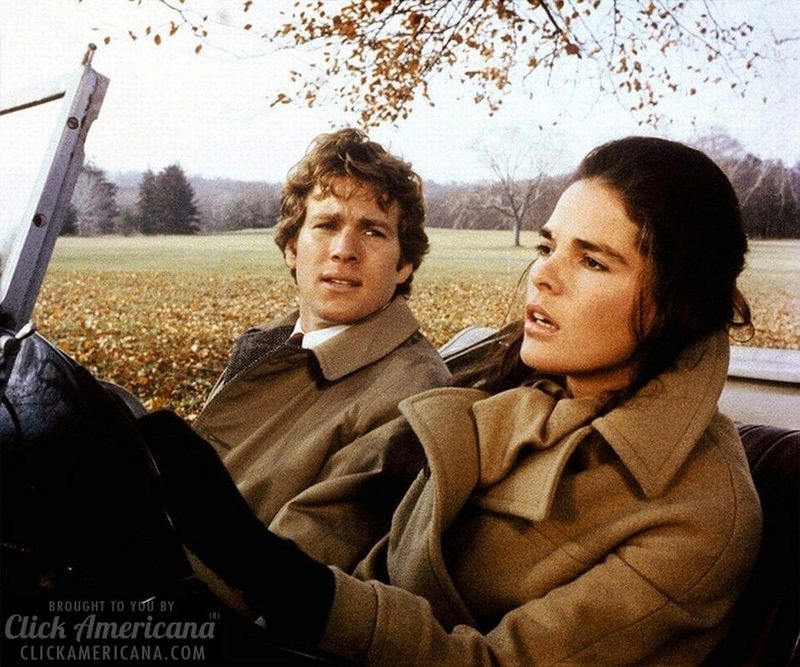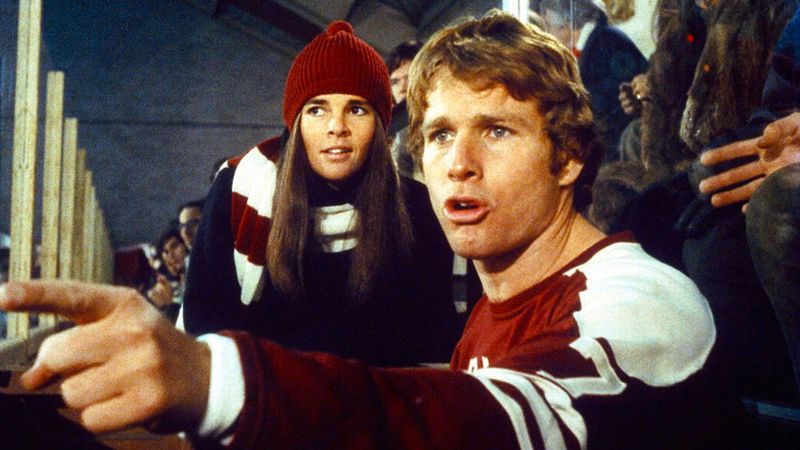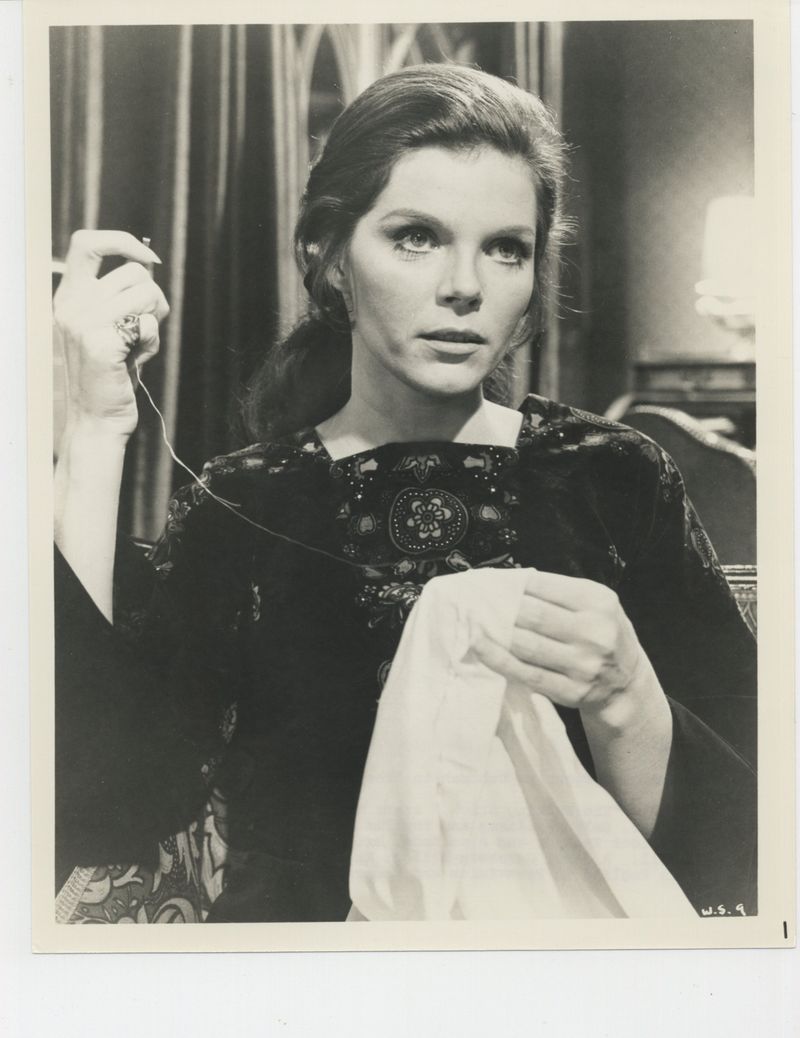When Love Story hit theaters in 1970, no one could have predicted just how deeply it would capture hearts—and break records. With unforgettable lines, a tearjerking plot, and a hauntingly beautiful score, this romantic drama became an instant cultural touchstone. Here are 17 fascinating facts about Love Story, the film that defined a generation’s idea of love.
1. It Was Based on a Book—Written After the Script
The story behind Love Story is as intriguing as its plot. Screenwriter Erich Segal wrote the script first, but Paramount Pictures saw the potential for a novel. They requested Segal to adapt his screenplay into a book. The novel was released before the movie, creating a unique situation where readers experienced the story in print first. The book quickly became a bestseller. This reverse adaptation added an unusual twist to the film’s history, intriguing fans and scholars alike.
2. The Book Became a Bestseller
Love Story’s novel version captivated readers worldwide, selling over 21 million copies. This literary success predated the film’s release, creating anticipation for the movie. The book’s poignant narrative struck a chord, resonating with the sentiments of the era. Its popularity wasn’t just confined to the U.S.; international audiences were equally enthralled. The novel’s success was a testament to the universal appeal of its themes of love and tragedy. It became a cultural phenomenon in its own right.
3. It Turned Ali MacGraw into a Star
Ali MacGraw’s performance as Jenny in Love Story catapulted her to stardom. Before this role, she was relatively unknown, but her portrayal of the spirited and tragic lead won hearts globally. Her natural beauty and compelling performance captivated audiences, making her an overnight sensation. The film’s success led to a flurry of magazine covers, interviews, and award nominations for MacGraw. She became a fashion icon and a symbol of 70s cinema, solidifying her place in Hollywood history.
4. Ryan O’Neal Almost Didn’t Get the Role
Ryan O’Neal’s casting as Oliver was far from certain. Several actors, including Beau Bridges and Michael York, were considered for the role. However, O’Neal’s chemistry with MacGraw was undeniable. His charm and ability to convey deep emotion won the producers over. The decision wasn’t without its risks, but O’Neal’s performance proved pivotal to the film’s success. This role defined his career, turning him into a leading man in Hollywood. His portrayal remains memorable decades later.
5. That Famous Line? Totally Unforgettable
The line “Love means never having to say you’re sorry” has become one of cinema’s most iconic quotes. Whether it’s met with agreement or skepticism, its impact is undeniable. The phrase encapsulates the film’s essence, reflecting the deep emotional connections between the characters. Over the years, this line has been parodied, celebrated, and debated. Its simplicity and depth have made it a cultural touchstone, often quoted in discussions about love and relationships.
6. It Was a Box Office Smash
Love Story was a box office phenomenon, earning $106 million in the U.S. on a modest $2.2 million budget. Its financial success was staggering, making it the highest-grossing film of 1970. The film’s emotional depth and relatability drew audiences in droves. Its success wasn’t just a fluke; it reflected a cultural moment where people craved heartfelt stories. The film’s profitability demonstrated the power of a well-told romance, setting a standard in Hollywood.
7. The Music Won Everyone Over
Francis Lai’s score for Love Story, especially the track “Where Do I Begin?”, became a musical sensation. The haunting melody won Lai an Academy Award, adding to the film’s accolades. The music’s emotional resonance complemented the storyline, enhancing the audience’s experience. Lai’s composition became synonymous with romance, playing in countless weddings and romantic moments. The soundtrack’s success was a testament to its timeless beauty, cementing its place as one of cinema’s great scores.
8. It Earned Seven Oscar Nominations
Love Story’s achievements extended to the Academy Awards, where it garnered seven nominations. The film was recognized in major categories, including Best Picture, Best Director, and Best Actor. While it won only for Best Original Score, the nominations underscored its critical acclaim. The film’s ability to connect with both audiences and critics was evident in these honors. Its Oscar recognition further solidified its status as a cinematic classic, celebrated for its storytelling and emotional power.
9. It Sparked a Trend of Tragic Love Stories
Love Story’s emotional impact spawned a wave of romantic dramas featuring doomed love and poignant endings. Hollywood took note, producing films that echoed its themes of love, loss, and emotion. This trend marked a shift in romantic storytelling, where audiences were drawn to the cathartic experience of tragic love. The film set a precedent for how love stories could be both heart-wrenching and commercially successful, influencing the genre for years to come.
10. The Ivy League Setting Was No Accident
The choice of Harvard and Radcliffe College as backdrops for Love Story wasn’t merely aesthetic. These prestigious institutions added an air of academic romance, enhancing the film’s allure. However, filming on campus came with challenges, leading some scenes to be shot at other universities. The Ivy League setting was integral to the characters’ identities, reflecting their societal pressures and expectations. It provided a rich, authentic backdrop that resonated with audiences familiar with collegiate life.
11. It Made Crying at Movies Cool
Before Love Story, openly crying at movies wasn’t common, but this film changed perceptions. Its heartbreaking narrative moved audiences to tears, making emotional responses to cinema more accepted. The film’s raw portrayal of love and loss resonated deeply, encouraging viewers to embrace their emotions. This shift in audience behavior highlighted the film’s cultural impact, breaking down barriers to emotional expression. Love Story’s influence extended beyond its plot, altering how people engaged with films emotionally.
12. The Film Was a Hit Worldwide
Love Story’s appeal wasn’t limited to the United States; it was a global sensation. Audiences around the world were captivated by its poignant love story, transcending cultural and language barriers. The film’s universal themes of love and loss resonated with diverse audiences, contributing to its international success. Its widespread popularity showcased the power of storytelling to connect people across different backgrounds. Love Story became a testament to the universal language of love, celebrated worldwide.
13. It Was Made on a Shoestring Budget
Despite its eventual success, Love Story was produced on a modest budget of $2.2 million. This financial constraint required creative solutions and resourcefulness from the filmmakers. The lack of extravagant effects and lavish sets didn’t detract from the film’s impact; instead, it highlighted the story’s emotional core. Love Story’s success demonstrated that a powerful narrative could triumph over big budgets, proving that heart and substance trump spectacle in storytelling.
14. Critics Were Divided
Love Story’s reception among critics was mixed. Some praised its emotional depth and honesty, while others criticized it for being overly sentimental. This division didn’t deter audiences, who overwhelmingly embraced the film. The differing views highlighted the subjective nature of art and its impact. Love Story’s ability to resonate with viewers, regardless of critical opinion, underscored its power as a cultural artifact. Its enduring popularity proved that emotional connection outweighs critical consensus.
15. It Launched a Short-Lived TV Series
In 1973, Love Story inspired a TV spin-off, attempting to capture the film’s magic. However, the series struggled to resonate with audiences, lacking the original’s emotional punch. Despite its potential, it was canceled after just one season. This venture into television demonstrated the challenges of translating cinematic success to the small screen. The series’ brief run highlighted the unique qualities that made the film special, proving that some stories are best left in their original form.
16. The Original Ending Was Even Sadder
Early drafts of Love Story’s script included a more tragic ending, with Oliver and Jenny’s goodbye unfolding in a hospital room. Test audiences found this version too devastating, prompting changes to the script. The decision to alter the ending didn’t diminish the film’s emotional impact; instead, it struck the right balance between tragedy and hope. This behind-the-scenes detail provides insight into the filmmakers’ process, showcasing their sensitivity to audience reactions.
17. It Still Holds a Place in Pop Culture
Decades after its release, Love Story continues to influence popular culture. Its iconic elements—lines, music, and themes—are frequently referenced in films, parodies, and even Valentine’s Day playlists. This enduring presence attests to its cultural significance and timeless appeal. Love Story set a standard for tragic romance, inspiring countless creators across media. Its legacy remains vibrant, proving that some stories never fade from the collective consciousness, continuing to touch hearts across generations.
